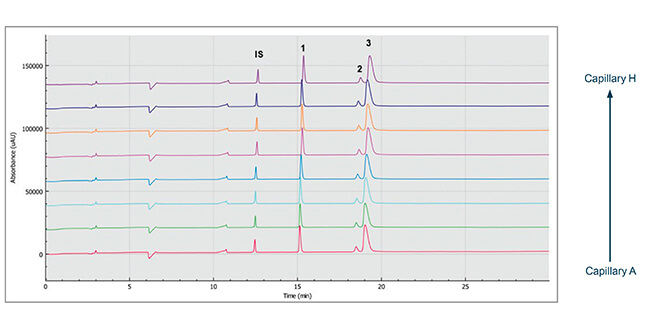
Introduction
Scientists analyzing biotherapeutics are challenged to rapidly and robustly characterize an increasing number and wider variety of drug candidates in less time. Automated capillary electrophoresis instruments offer fast separation times and proven, high reproducibility for capillary sodium dodecyl sulfate gel electrophoresis (SDS-CGE), thus representing an excellent tool for the analysis of therapeutic proteins. However, due to the single capillary format of current systems, the throughput can be limited. The SCIEX BioPhase 8800 system utilized a multi-capillary format that can assist in alleviating this issue, enabling characterization to be performed on multiple samples in parallel.
Protein based biopharmaceuticals represent an important class of therapeutic agent that has high efficacy. First generation monoclonal antibodies (mAbs), revolutionized the therapeutic landscape for many diseases. More recently, new modalities such as multi-specific antibodies, fusion proteins, antibody- drug conjugates, and nanobodies have emerged in many fields of medicine, including: oncology, inflammatory, infectious, neurological diseases, and imaging.1-3 Purity assessment of these therapeutic entities and determination of any structural variances introduced during manufacturing, is of high importance for the biopharmaceutical industry. One of the most frequently used techniques for rapid characterization, release and stability testing for protein therapeutics is sodium dodecyl sulfate capillary gel electrophoresis.4 It is well known that 1 g of protein can uniformly bind with 1.4 g SDS. This ratio leads to a similar charge to the hydrodynamic volume ratio of the protein-SDS complexes. The CGE provides a sieving matrix for size-based separation.





